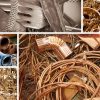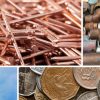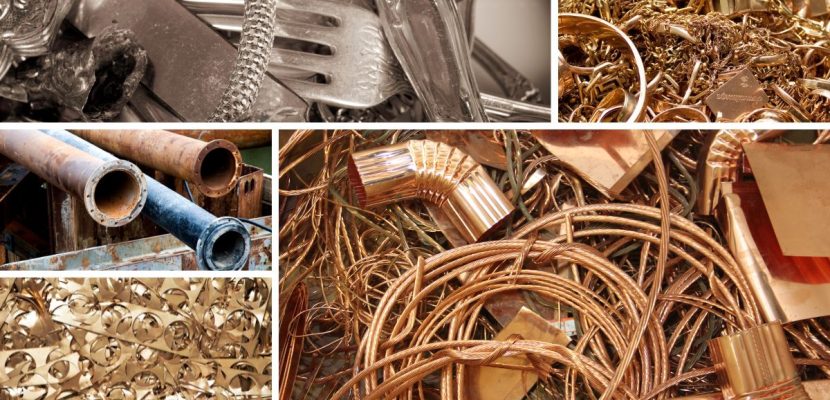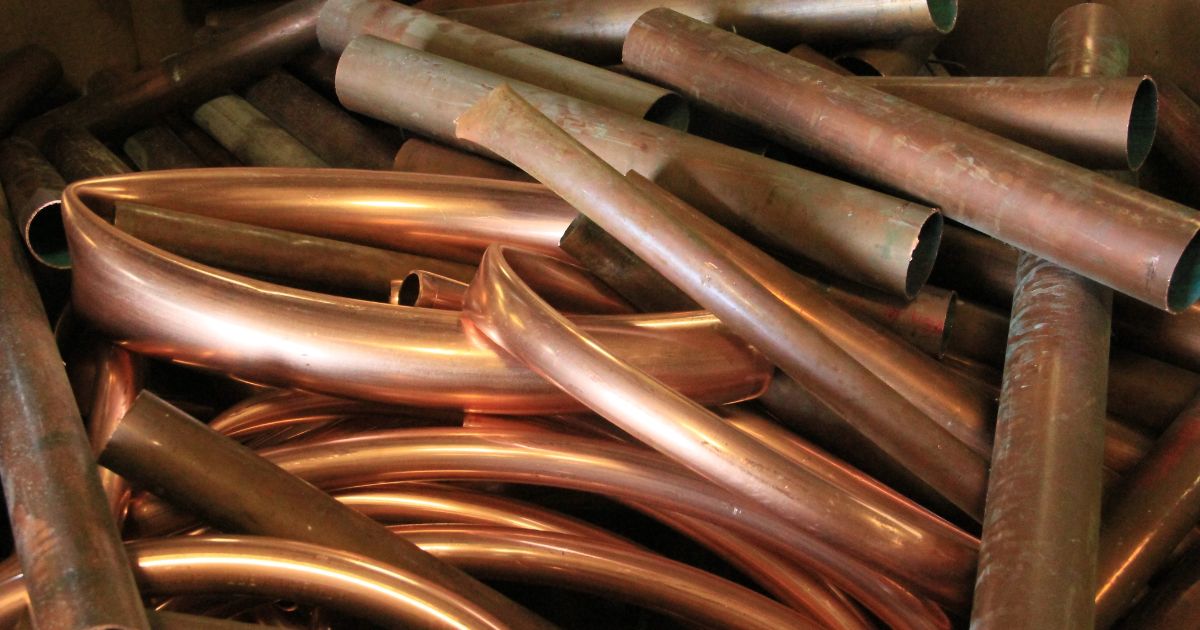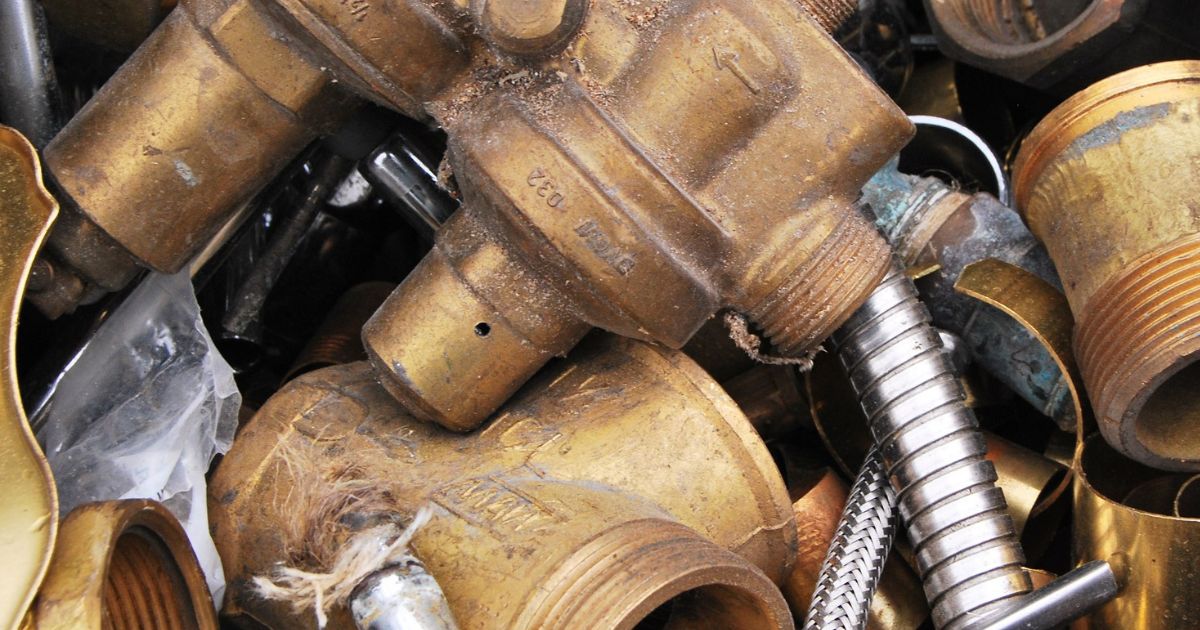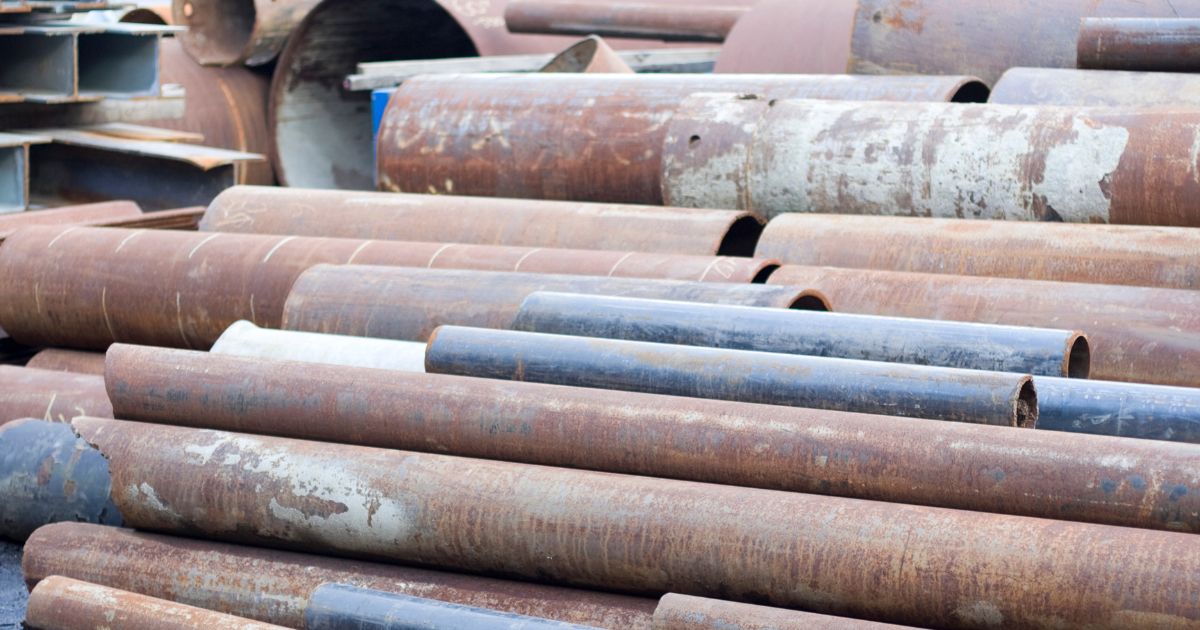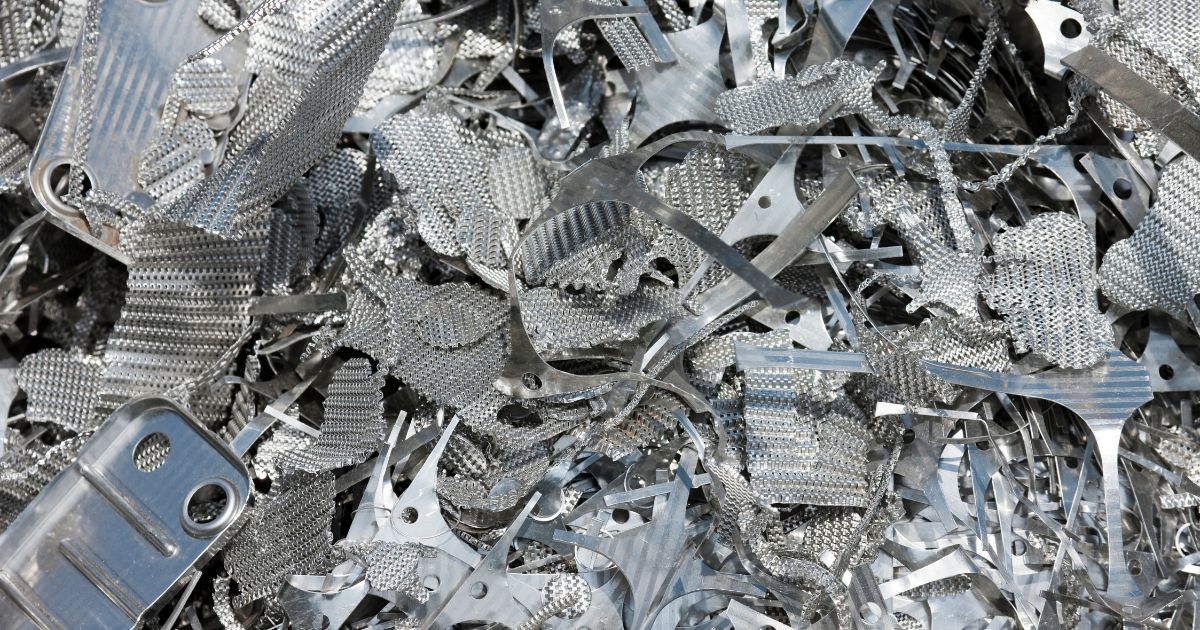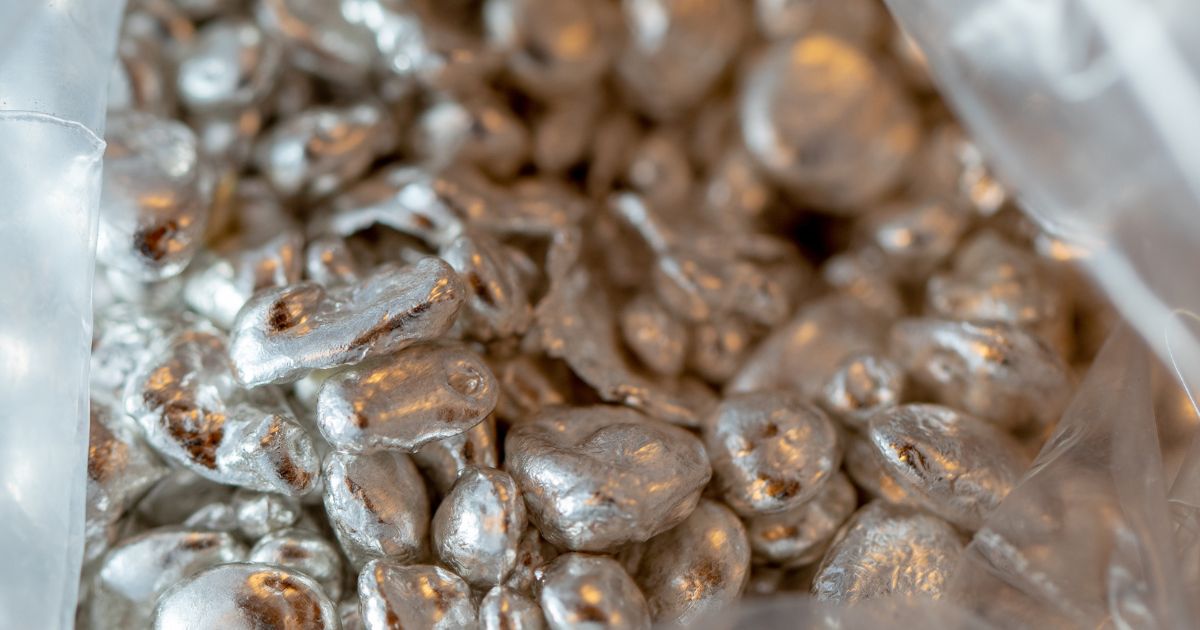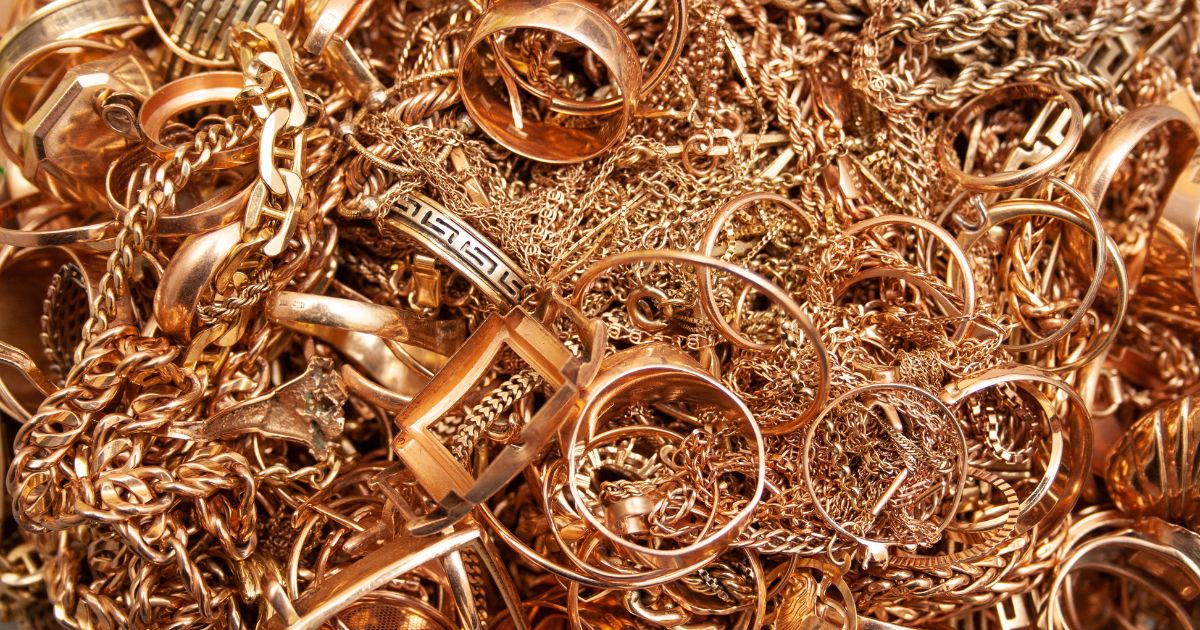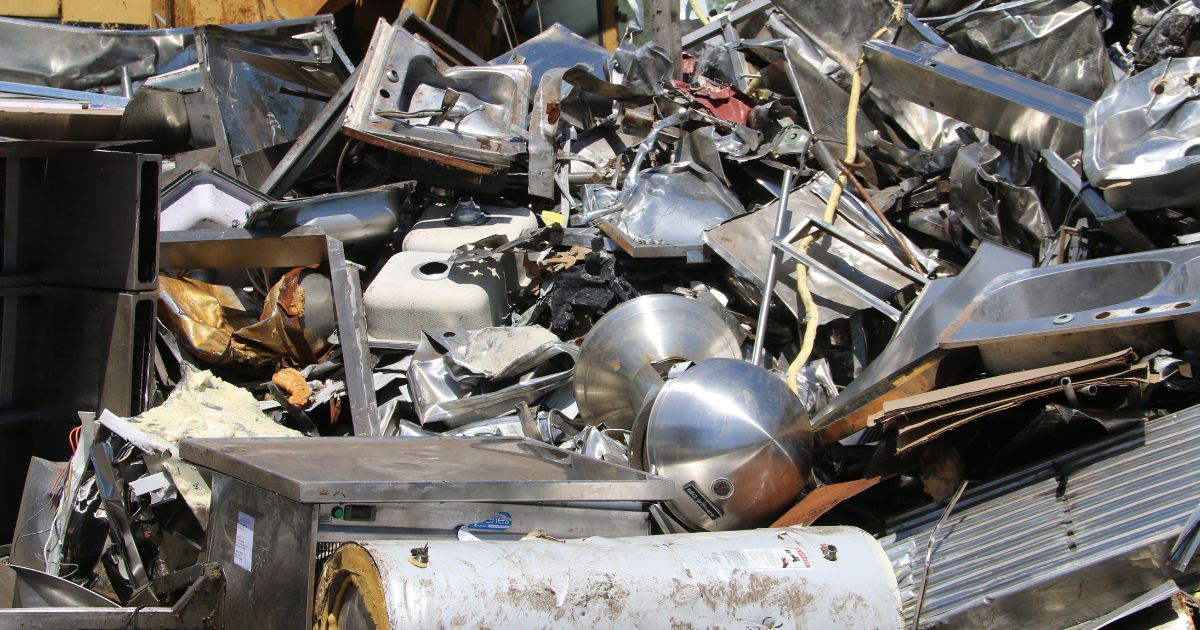While most scrap metals retain some recycling value, the true worth of different metals can vary significantly. Factors like availability, unique properties and end-use demand influence the current market pricing of metal scraps. This article aims to identify the seven scrap metal varieties that have proven most valuable.
By considering elements like rarity, processability, and commercial utilisation, we will determine which common post-consumer and post-industrial scrap streams top the scale in terms of realised resale price. From there, each top metal will be examined to understand why its intrinsic qualities make it the cream of the scrap crop.
Copper: The Most Valuable Scrap Metal
Copper is widely found in many everyday products here in Australia. It has roles in wiring for homes and buildings, electronics, and equipment that transfers or moves heat. Because copper is in so much, scrap copper regularly comes from different countries after items have been used up.
However, copper’s great ability to conduct electricity and move heat has kept its scrap price high for a long time. Due to these natural properties, copper cannot be replaced for certain important jobs. As a result, Australia continues to need copper that can be recycled from scrap. Metro Copper Recycling provides scrap copper pick-up services in Melbourne. We pick up your scrap copper from all over Melbourne and its surrounding areas for FREE (a minimum weight is required). Currently, the price of scrap copper ranges between $6 and $8 per kilogram here. This price remains high because copper remains useful for many uses. Recycling scrap copper also takes less energy than making new copper from raw materials dug up from mines. So, recycling scrap copper saves money, which helps maintain its value.
Brass: A Coppery Alloy Maintaining Mid-Range Merits
Brass is an alloy, or mixture, of copper and zinc. It shares copper’s excellent electrical and thermal conductivity while gaining improved strength and machinability from zinc additions.
Like its core component, brass sees wide use in Australia – predominantly in plumbing systems, valves, hardware and other applications that require durable elements able to withstand mechanical stresses and exposure to liquids.
Given the functional lifespan of brass products, brass scrap is regularly recycled back from job sites and via plumbing/hardware suppliers once parts fatigue or are replaced. This offers brass scrappers an ongoing mid-range commodity.
Currently, brass scrap prices are between $4 and $6 per kilogram in Australia. While not challenging copper’s ceiling, brass values remain steady due to the alloy’s mechanical attributes, which are pried by engineers and tradespeople. Its recyclability keeps costs down, too.
Lead: Batteries Bolster Its Bottom Line
Lead is widely used as a dense, corrosion-resistant metal. In Australia, it notably features automotive and industrial batteries, along with items like radiation shields, soundproofing, and chemical tanks.
Given the lead’s diverse roles, lead-containing scrap arises consistently. Major sources include old car batteries, plus scrap from battery manufacturing and recycled via battery suppliers. Lead acid batteries represent the bulk of Australia’s lead demand.
Due to lead’s recycling friendliness and high recyclability rate, battery collections greatly bolster lead scrap profits yearly. Unlike some metals, lead can undergo reprocessing and reuse without losing quality, making it economically smart to recycle rather than mine. Sell your scrap batteries in Melbourne for immediate cash in return.
Currently, lead scrap is priced between $2 and $3 per kilogram in Australia. This mid-range figure remains supported by ongoing battery consumption in cars, homes, machines, and more. Batteries especially keep lead scrap flowing profitably each year for metal recycling companies nationwide.
Aluminium: Lightweight but Lucrative
Aluminium is a versatile metal renowned for its high strength yet light weight. Here in Australia, it features widely in transportation like cars, trucks and aircraft. It’s also prevalent in building construction, packaging materials and other applications.
As such, various forms of aluminium scrap arise consistently nationwide. Examples include used cans, foils, vehicle panels and construction off-cuts. Aluminium’s omnipresence means it’s one of the most collected recyclables Australia-wide.
An advantage of aluminium is that once reshaped, its properties remain largely unchanged – allowing infinite recycling without quality loss. This recyclability, combined with energy savings versus primary production, enhances aluminium scrap’s attractiveness.
Currently, Scrap Aluminium Prices in Melbourne range between $2 and $4 per kilogram. Despite aluminium’s relatively low density, its widespread commercial adoption maintains steady scrap demand and prices for Aussie recyclers long-term. We are one of the leading aluminium recycling company in Melbourne and offer convenient drop-offs or FREE pick-up of your aluminium cans and scrap and in regional areas including Geelong and Ballarat.
Silver: Small but Sparkling Profits
While scarce compared to other commercial metals, silver retains huge industrial and luxury value due to its electrical and thermal properties. It appears minorly in various technologies and consumer goods.
Sources of silver scrap tend to be on the smaller size, such as residual chemicals from historical photography use or minor amounts in electronics. Jewellery and small industrial applications also contribute to silver scrap over time.
However, silver’s high conductivity and polished aesthetic mean demand remains steady. Combined with the metal’s intrinsic rarity, this cements silver scrap’s premier commodity status.
Reflecting limited global silver finds, Aussie prices are currently between $800-$1000 per kilogram. Clearly high, but justified by silver’s purity when recycled and ongoing commercial uses nationally.
Gold: The King of Commodities
While rarer than even silver, gold retains worldwide lustre for its Beauty, density and resistance to tarnish or corrosion. It appears in small percentages within some electronics and remains treasured for aesthetic jewellery.
Sources of gold scrap tend to be minute, such as discarded electronics, jewellery production wastage or end-of-life personal adornments. Yet gold’s worldwide use, combined with limited new finds, keeps demand premium.
Similar to silver, gold’s intrinsic worth and recycled purity maintain exponential scrap values. Reflecting ongoing commercial needs and gold’s intrinsic luxury aura, Aussie prices currently soar between $60,000-$80,000 per kilogram.
Clearly, a high-value collector’s item, any amount of gold scrap discovered represents a massive potential payout proportional to this most prestigious metal’s near-mythical high standing over millennia of human history.
Stainless Steel: Rustproof and Recession-Resistant
Stainless steels contain chromium and other alloying elements enhancing corrosion resistance. In Australia, they feature prominently in appliances, vehicles, machinery, architectural detailing and more.
This widespread employment results in consistent stainless scrap generation. Sources include manufacturing byproducts, construction/demolition waste and end-of-life appliances/equipment.
Chromium additions grant high recyclability without loss of stainless properties post-reprocessing. Stainless also retains demand through changing economic climates due to its affordable but enduring qualities.
Currently, Australian values sit around $1-2/kg. While not premium, these stable mid-range prices still reward collectors thanks to stainless’ steady recycling rates and versatility granting consistent scrap reuse.
Rustproof and built to last, stainless steel scrap proves a recycler’s recession-resistant commodity that regular collectors can reliably count on year after year.


